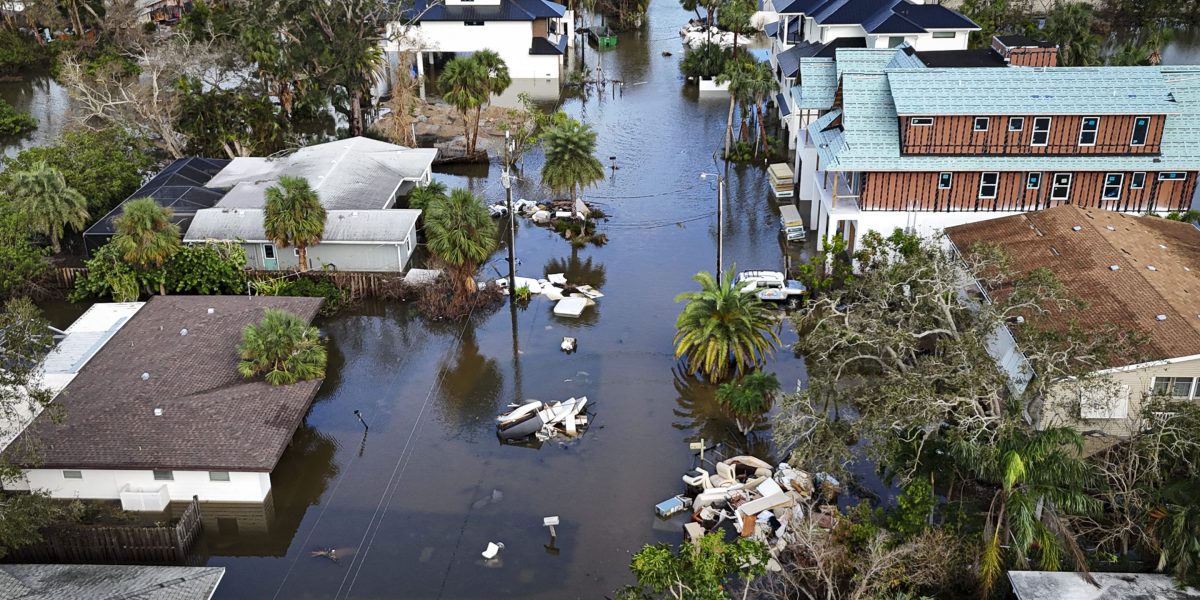Hurricanes and other natural disasters are becoming more severe and more common. Last month, hurricanes Milton and Helene devastated parts of the South, including the Tampa area in Florida, and the Asheville region of North Carolina, causing billions of dollars worth of damage.
As once-in-a-lifetime storms become an annual occurrence, business and HR leaders need to spend time thinking about how they can show up for workers who are affected by these events. That includes making plans for disasters before they hit, and connecting employees with emergency services in their hour of need.
“Things that are as simple as determining whether you’re in a disaster-prone area and what types of disasters you could be subject to at your facility is one of the first steps you should take,” Patrick Joyce, a labor and employment attorney who assists clients with environmental counseling and litigation, tells Fortune.
Limbach, a building solution business with over 300 employees in the Tampa, Florida area, has dealt with hurricanes for years. Company leaders prepare employees months in advance, notifying them of evacuation routes and alternative shelter options, and reminding them of which supplies to keep on hand, including first aid kits and backup generators.
“We’re not starting from scratch,” says DiMuro about the company’s hurricane planning. “We’ve already prepped everyone, so when they do hear from us, it’s just a reminder.”
Experts that Fortune spoke with say having a communications plan in place, as well as several different methods to contact employees, is critical. Providing support services in the aftermath of a disaster is also key—those can include Employee Assistance Programs benefits like trauma counseling, and grant programs so that employees can access money immediately. Some companies, like Bank of America and EY, even have full time emergency response teams, which are set up to connect employees with the resources they need.
But HR leaders should remember that they can and should think outside the box. That may mean renting hotel rooms so that employees without water have a place to shower, or setting up a makeshift shelter in a satellite office.
Perhaps most importantly, employees may need time off work to recover, as well as the option to work remotely while they get back on their feet.
“A company that‘s looking out for its people will give them flexibility, whether it’s work from home or PTO, to care for the family and figure out the next steps,” says Dan Kaplan, senior partner at Korn Ferry’s HR officers practice.
Read more about how HR managers should go about preparing for hurricane season here.
Brit Morse
brit.morse@fortune.com
Around the Table
A round-up of the most important HR headlines.
Venting to your co-workers can be productive and healthy. Gossiping is not. Leadership expert and bestselling author Simon Sinek says it’s important to know the difference. –CNBC
It’s been weeks since hurricane Helene, but workers in certain regions, including Asheville, North Carolina say they still need help with recovery. –Fast Company
In the wake of the presidential election, interest in digital nomad visas is on the rise. Some experts say it could be the start of a new remote work era. –New York Times
Watercooler
Everything you need to know from Fortune.
Post-election thoughts. In the days since Donald Trump won the presidency, women leaders have had to reckon with that outcome. Fortune spoke to some of them about what they plan on doing next. –Emma Hinchliffe and Nina Ajemian
More sick days. Due to the rise in mental health difficulties among young people, Gen Z employees are now more likely to call in sick than older generations. –Ryan Hogg
Manager efficiencies. In an internal memo, Amazon CEO Andy Jassy announced a plan to increase the ratio of individual contributors to managers at the company by at least 15%. –Sydney Lake
